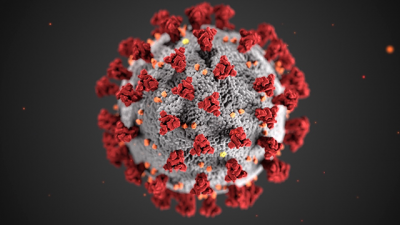You’ve been exposed to Covid-19. Now what?
Each day, more and more Dartmouth residents find themselves on the receiving end of an unfortunate phone call from a family member, employer, friend or public health official. The caller says a variation of: “I’m sorry to tell you this, but you’ve been identified as someone who has had recent contact with an individual who has tested positive for Covid-19.”
What comes next? Dartmouth Week spoke with a few public health officials to find out.
Isolation or quarantine
If you’ve been exposed to someone who has tested positive for Covid-19, you should quarantine yourself, keeping to your own house as much as possible and limiting contact with even those in your own household, according to Dartmouth Public Health Director Chris Michaud.
This means wearing a mask — yes, even at home — and keeping six feet away from others at all times, to reduce the risk of transmitting the virus to your own family. You and your family members should also take care to wash hands and sanitize surfaces often, as well as monitoring for symptoms like fever or cough.
You should not go to work, school, or run errands. In fact, state guidelines require those quarantining to remain at home unless they need urgent medical care.
“As soon as you talk to those contacts, and you ask them to start quarantining, really what you’re doing there is you’re trying to break the chain of transmission,” explained John Welch, Executive Director of the Community Tracing Collaborative, a body set up by the state to help support local health departments with contact tracing. “By quarantining those who may test positive, you’re trying to stop the spread to other people.”
Every resident who tests positive for Covid-19 hears from the town’s Board of Health as well the CTC in order to discuss plans for isolating and services or resources necessary to remain at home, as well as to identify close contacts who may have been exposed.
If you’ve tested positive for the virus, you should isolate yourself immediately from others, including those in your own household.
Rules for isolation are even more rigid than for quarantine.
They include sleeping (and eating) in a separate room, keeping out of common areas as much as possible, and using a separate kitchen and bathroom if possible — plus wearing a mask in common areas, using common rooms at different times than others, and wiping everything down carefully with sanitizer afterwards.
Nurses with the town’s Board of Health call each Covid-positive person to discuss what isolating will look like for them, including working from home options, according to one town nurse who makes the calls and who wished to remain anonymous.
They also offer support and resources for the person to get food, medical supplies, diapers, or any other necessities delivered to their house so as not to leave and risk transmitting the virus to anyone else.
“I always think it’s important for people to think about, if they got that call tomorrow, what’s their plan,” said Welch. “So [you] get a call — do you have someone who might be able to help you with groceries, etc.?”
The Community Tracing Collaborative gathers the names and phone numbers of all those with whom the positive person had close contact in the 48 hours before they either experienced symptoms or took the Covid test, so having a list of names and numbers ready could speed up the process as well.
How long?
The incubation period for the virus is up to 14 days, although a majority of cases incubate for fewer than 10 days.
If you have been exposed, you should check your temperature daily and monitor yourself for symptoms of Covid-19 infection such as coughing, difficulty breathing, muscle or body aches, sore throat, headache, or a new onset loss of taste or smell.
According to state guidelines, there are three possibilities for how long the quarantine may last:
•14 days — This reduces the risk of spread the most.
•10 days — If you still have no symptoms 10 days after your exposure and you can commit to monitoring yourself carefully for symptoms (including a daily temperature check) for the full 14 days, you can end quarantine on day 11.
•Seven days — If you have no symptoms after seven days and a test taken on day five or later comes back negative, you can be released from quarantine on day eight. You must still monitor yourself carefully for symptoms for the full 14 days.
If even mild symptoms appear at any point, you should self isolate and get tested.
Getting tested
Health officials also recommend getting tested if you have been exposed to the virus or if you have symptoms. A Covid test should be taken 4-7 days after your last exposure.
Even if a post-exposure test comes back negative, however, you should continue your quarantine for the duration.
If you initially test negative for Covid-19 you could still develop the disease at any time for up to 14 days after your exposure.
Especially if you’re not feeling well, there’s no need to wait for a positive test to let your own close contacts know that you may have been exposed to the virus and that you are awaiting results.
Residents can still get tested at the large drive-thru site in the Whale’s Tooth parking lot in New Bedford, which earlier this month changed from drive-up to appointment only. Contact (617) 741-7310 or create an account at app.beacontesting.com/login to make an appointment.
For more information on what to do when you or someone you know tests positive, visit mass.gov/isol8.













